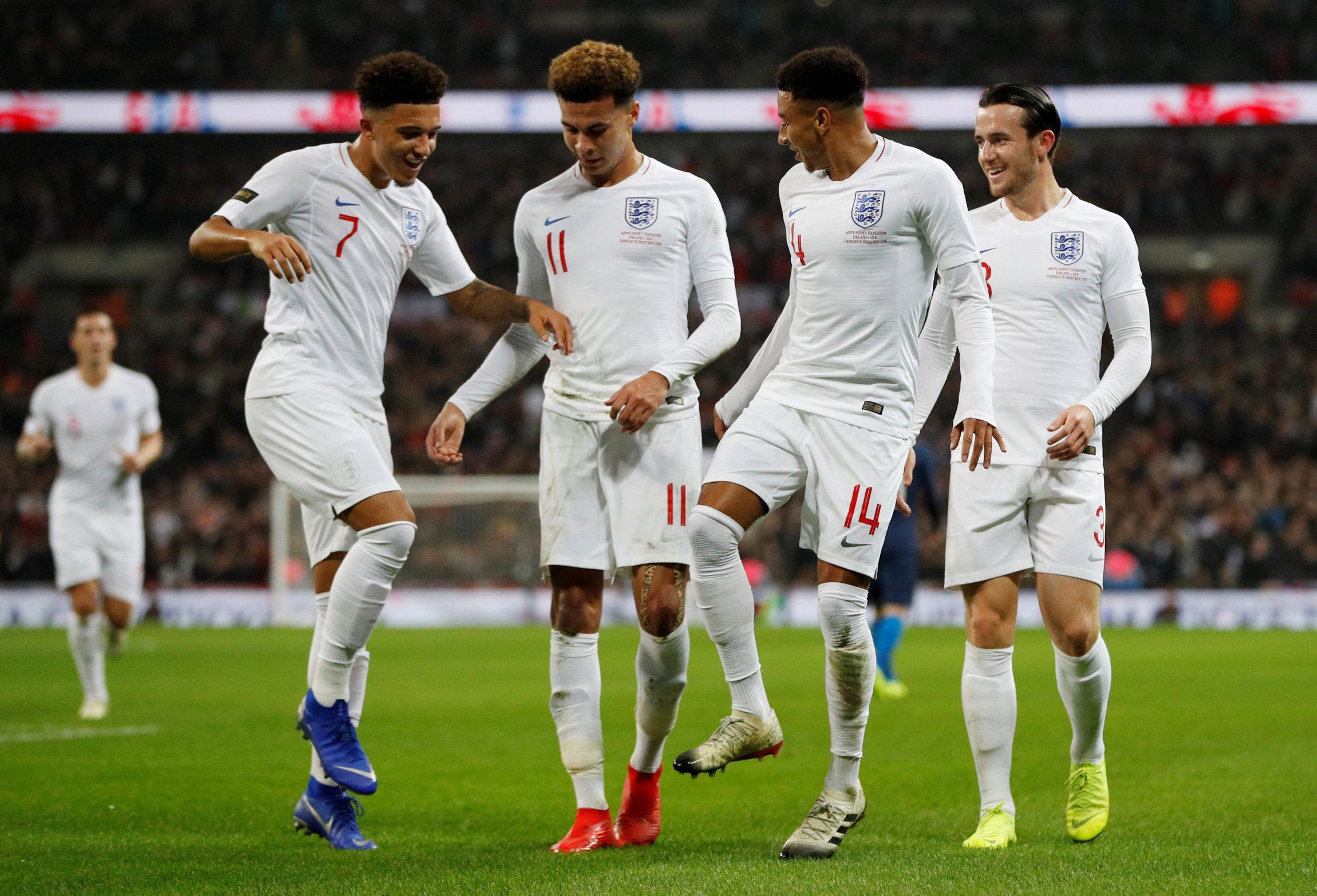[ad_pod ]
English football may finally be waking up to the talent on its own doorstep, and it’s all thanks to Germany.
The Bundesliga has long been compared to the Premier League when it comes to style of football, the speed of the league and the rabid, noisy fans, but there are a number of very obvious differences: fans can regularly afford to watch their team, while clubs in the German top-flight do not boast the same resources as those in England.
Those resources, however, are currently being funnelled into one mission: snapping up the best talent from English shores.
Jadon Sancho has blazed the trail, leaving Manchester City to join Borussia Dortmund in a deal that was worth £8million in 2017. He has been a revelation in Germany, playing regularly, making 47 appearances in total and scoring 10 goals, while also providing 21 assists. He has played four times for England and is routinely linked with Manchester United. That transfer fee could come to £100m or more.
Trusting one’s harvest often yields the best fruit and yet English football has consistently shied away.
Indeed, it took interest from Bayern Munich for Chelsea to start playing Callum Hudson-Odoi and even he has yet to start a Premier League game. He made his first start for England on Monday and turned in an exceptional performance in the 5-1 thumping of Montenegro, even laying on an assist to club-mate Ross Barkley. He may or may not be in the team to face Cardiff City this weekend.
Bayern, though, appear to believe that he has the talent to slot straight into their starting XI. Hudson-Odoi is 18 and was the subject of a bid worth over £30m in January. Chelsea resolved to keep hold of him and, ultimately, that may prove to be the correct decision; the club were handed a transfer ban by FIFA recently and will not be able to acquire any new players in the summer.
These two transfer stories, even when taken in isolation, prove something. There is a massive amount of talent on the Premier League’s doorstep and yet for too long it has been ignored.
It appears that this inexplicable trend might be changing. Gareth Southgate picked Hudson-Odoi and Sancho in his England squad, along with the likes of Declan Rice and Ben Chilwell. Two of those mentioned are teenagers; Chilwell was still eligible to play for the Under-21s in December and Rice only turned 20 in January.
It filters down, too. In the Under-21s, the likes of 18-year-old Ryan Sessegnon and 20-year-old Tom Davies are regulars for both Fulham and Everton. Phil Foden, the same age as Sessegnon, is the jewel in Manchester City’s academy and is surely set to make a first-team breakthrough next season.
Marcus Rashford, an undisputed starter at Manchester United, is still eligible for the Under-21s, along with the likes of Liverpool’s best right-back, Trent Alexander-Arnold, Arsenal’s utility man, Ainsley Maitland-Niles and Chelsea’s next great midfield hope Mason Mount, on loan at Derby County.
There is a golden generation waiting to break out and now there is no excuse not to give them the chance to thrive.
In recent years, there has been little consequence to leaving players in the reserve teams or sending them out on loan spell after loan spell after loan spell. Tottenham striker Harry Kane, now England’s captain, went on four loan spells across three years during his development. That he made it was more a happy accident than a foolproof plan. Now, though, there are more than a few interested spectators monitoring England's best young players.
After Sancho proved such a valuable export, it is a realistic proposition for elite foreign clubs to target the players left banging on the glass ceiling in the youth teams.
Dortmund’s technical director, Michael Zorc, even claims that England now produces better youngsters than Germany; for so long the inverse has been true, with the youth systems of Bundesliga clubs feted as an example to follow.
Zorc told the Daily Telegraph: “The [English] teams don’t only spend much money on transfers or salaries but also on infrastructure. When you see these youth academies – for example, Man City – you can’t compare it with the German standard. It’s much higher, much higher.
“And also it seems to me that it’s something like a business model for them because even if they don’t succeed in their own teams they sell them for higher prices. I just read a figure of Man City – I think they’ve sold young players for more than €150 million within the last three to five years.”
England, of course, have a culture of winning at youth level. The Under-17 and Under-20 teams both won their respective World Cups in 2017.
Finally, now, it appears that there is a genuine pathway for the players in those teams to not only make it but to thrive at both club and international level.
Perhaps for the first time, English football owes Germany a huge debt of gratitude.


